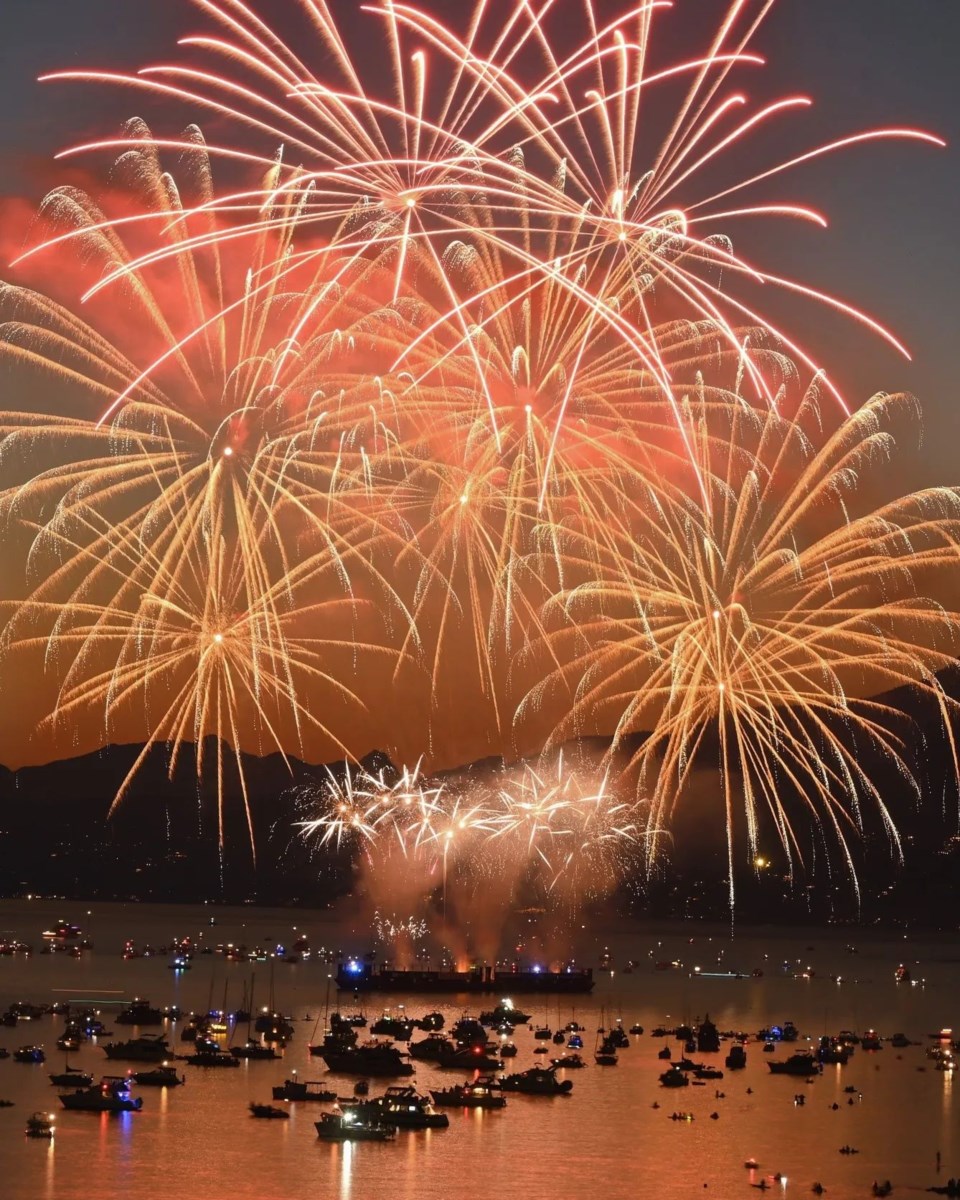Last night, July 30, was the final evening of the three-day event culminating in a stunning display by the team from Spain. But do Vancouverites actually enjoy hosting the fireworks every year?
Over the last week, people have been posting photos of the crowds on social media and expressing frustration at trying to leave English Bay or the Downtown core after the show. It's estimated that before the pandemic the Honda Celebration of Light drew 400,000 people to the beaches and seawall to watch. While the numbers may be reduced this year after a two-year hiatus, there were certainly more than enough people to cause delays. Luckily this year there were very few incidents according to VPD and the Â鶹´«Ã½Ó³»Fire Department.
The week of fireworks is now in its 30th year and the impressive pyrotechnics are painstakingly designed and planned before being set off into the night sky from a barge in English Bay.
The fireworks can be seen and heard from vantages across Metro Â鶹´«Ã½Ó³»and to find out if this is a welcome addition to our city's lineup of free events or frustrating noise pollution in disguise, Â鶹´«Ã½Ó³» polled 631 readers and asked the question: Do you like the Honda Celebration of Light?
The poll ran from July 24 to July 29 and of the 631 votes, we can determine that 401 are from within the community. An overwhelming majority of 65.6 per cent of people enjoy the fireworks and think it's a great free event and only 34 per cent of locals think it's loud and annoying.
Results are based on an online study of adult Â鶹´«Ã½Ó³» readers located in Vancouver. The margin of error - which measures sample variability - is +/- 3.9%, 19 times out of 20.
Â鶹´«Ã½Ó³» uses a variety of techniques to capture data, detect and prevent fraudulent votes, detect and prevent robots, and filter out non-local and duplicate votes.
With files from Maria Diment and Brendan Kergin.




